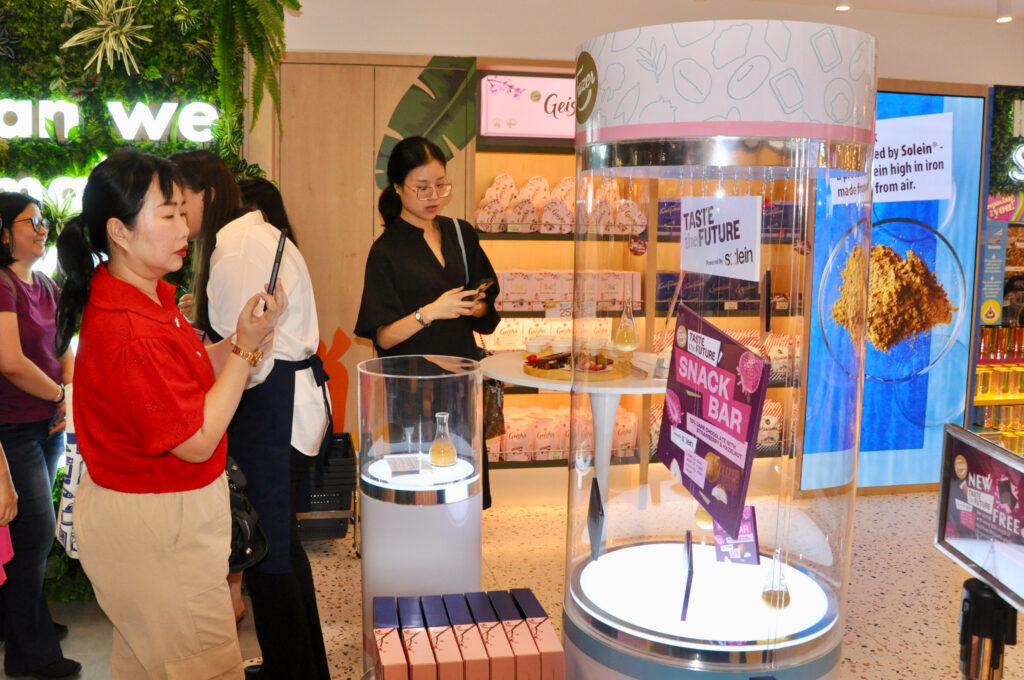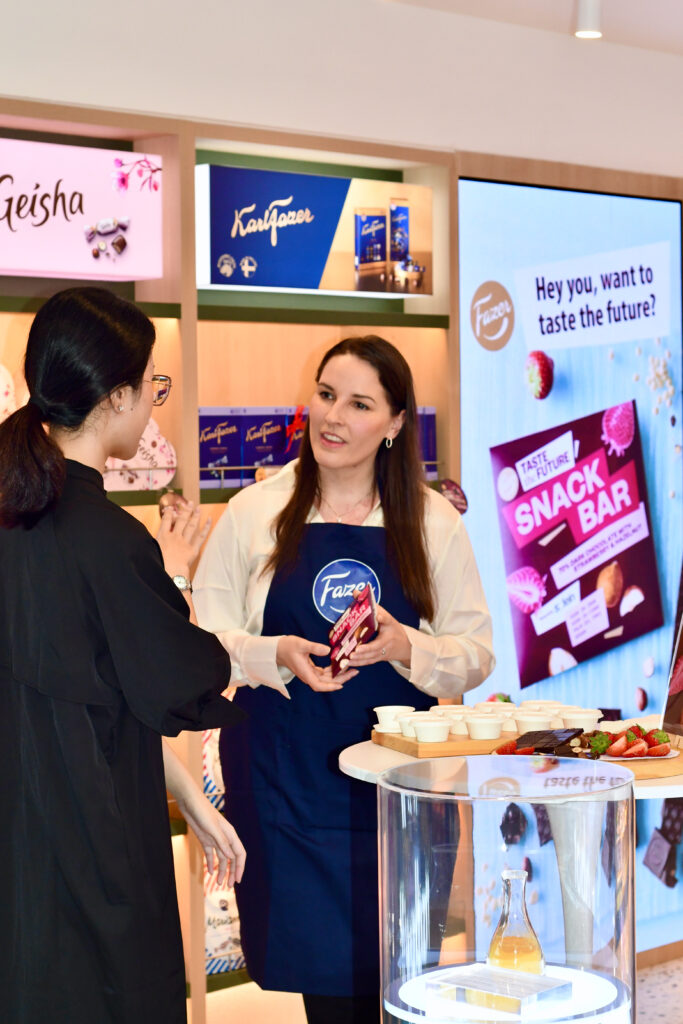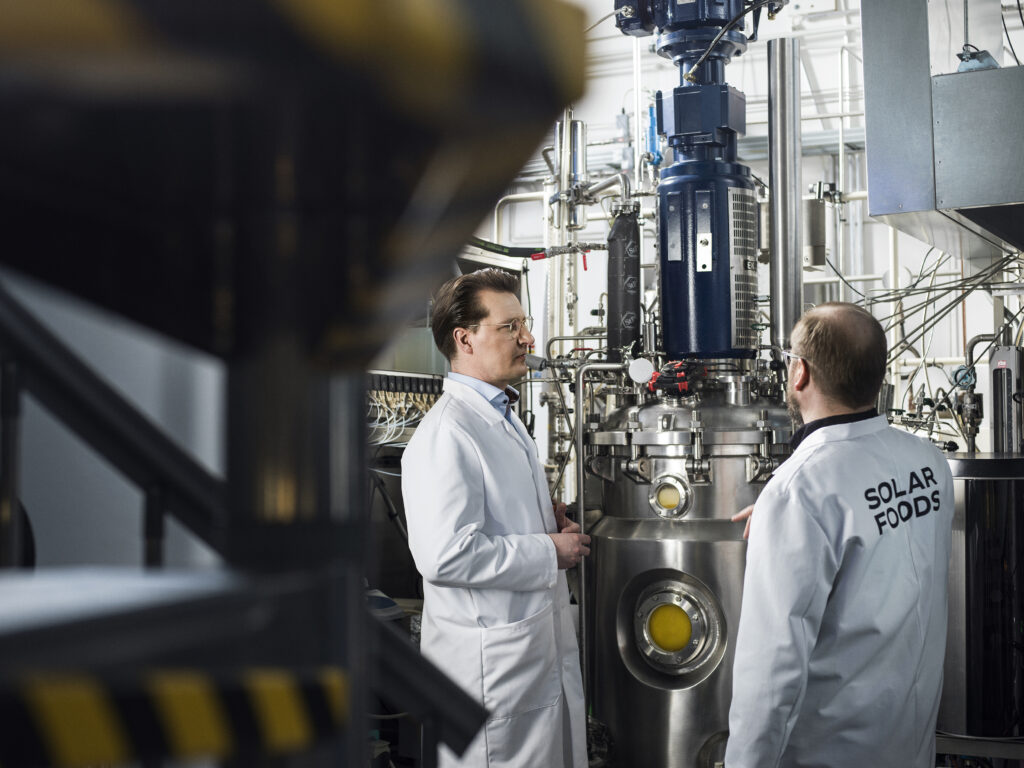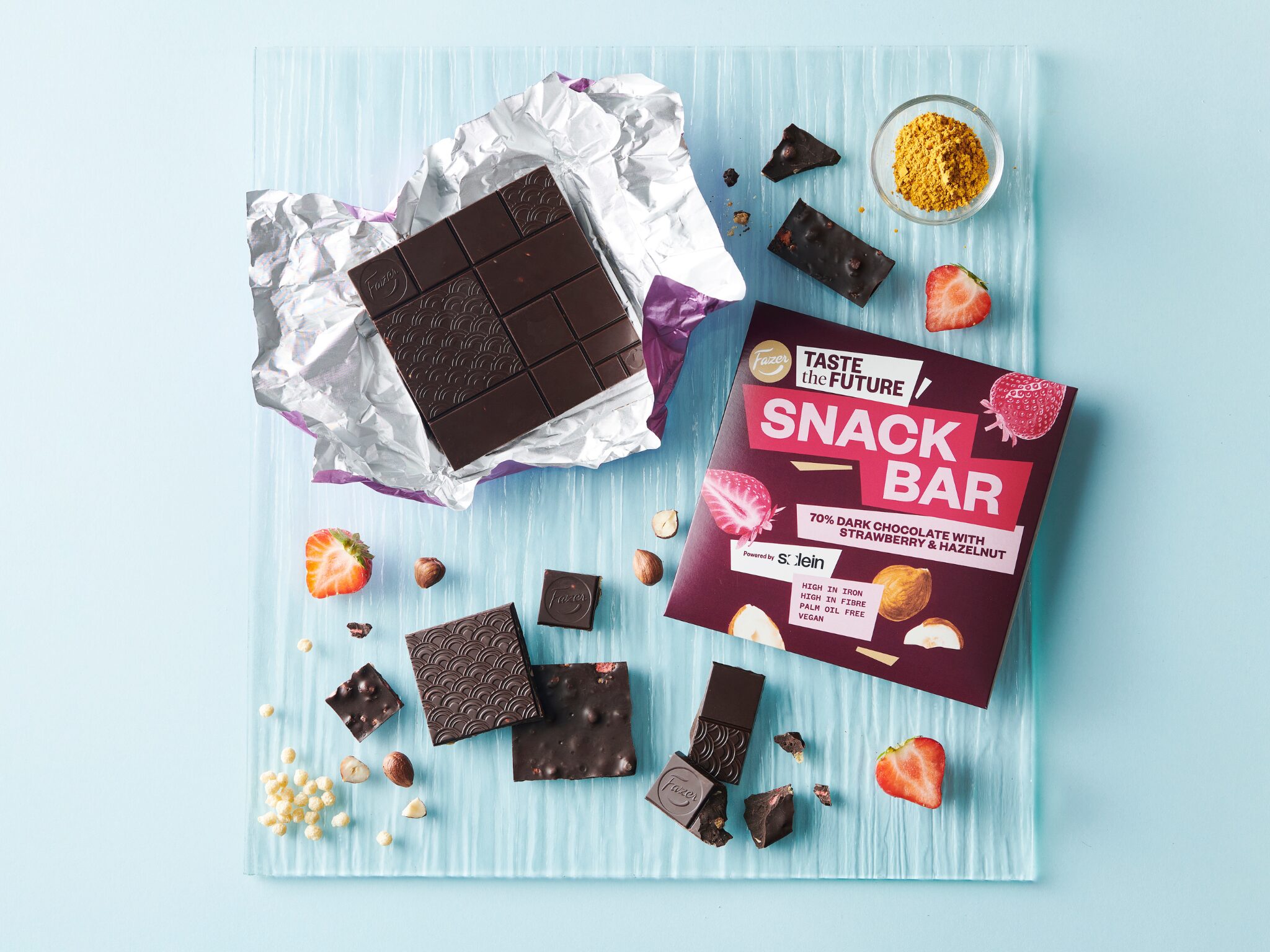A Snack Bar Made From Air: Fazer Unveils Limited-Edition Chocolate Bar Using Solein
5 Mins Read
Finnish company Solar Foods’ Solein protein is expanding its footprint in Singapore through a partnership with Helsinki-based food giant Fazer Group, which has crafted a limited-edition snack bar using protein made from air.
Fazer has released Taste the Future, a chocolate snack bar powered by Solein, in Singapore – marking the protein’s retail debut 16 months after receiving regulatory approval. The product is available at five The Cocoa Trees stores across the island.
Fazer – which posted €1.1B ($1.19B) in revenue in 2022 and is Solar Foods’ biggest shareholder – hosted a media tasting of the limited-edition bar on Thursday, ahead of a one-time public sampling opportunity on Saturday afternoon at The Cocoa Trees store at Raffles City Shopping Centre.
“Singapore is the perfect test ground for our Taste the Future Chocolate Snack Bar, with a highly innovative food ecosystem and people who are not only passionate about food, but curious to try new things that are new, with nutrition and sustainability benefits,” said Heli Anttila, VP of new product development at Fazer Confectionery.
An iron- and fibre-rich vegan snack bar

The vegan chocolate, hazelnut and berry snack bar contains Nordic oat puffs and 2% Solein powder, and was produced at Fazer Lab, the company’s R&D and innovation unit in Vantaa, Finland. Free from palm oil, the product is made from “100% responsibly sourced cocoa” and is high in fibre and iron.
While the flavourless Solein protein – made by fermenting microbes with carbon dioxide, hydrogen and oxygen replacing sugar as an energy source – had debuted as part of a vegan gelato at Singaporean eatery Fico in 2023, this is the first time it’s available as an FMCG product.
Fazer and Solar Foods have been working hand-in-hand on R&D and product development. With the latter’s commercial-scale Factory 01 set to be operational by the first half of this year, the limited run proves to be a good test for this nutritious consumer snack bar’s future market rollouts, once the protein is in full production. This is in line with Fazer’s own emissions reduction goals and target for 100% sustainable sourcing.
“This is an exciting moment for us working with Fazer – the very first time people can try Solein within a consumer snack bar,” said Solar Foods CEO Pasi Vainikka. “This also demonstrates the potential of Solein as a sustainable and nutritious fortifier. With this introduction in Singapore, we are getting valuable customer feedback on Solein’s viability in a new product category and also get a sense of the consumer acceptance of future ingredients.”
Solar Foods targets 2025-26 European launch

Solar Foods, which began in 2017 as a spinout of the VTT Technical Research Centre of Finland and LUT University, calls Solein the “world’s most sustainable protein”, with a production process that forgoes the need for open land, fertilisers and pesticides, and irrigation. It can be made in desert-like conditions, the Arctic, and even outer space (the startup has collaborated with the European Space Agency on a food project for Mars). The microbes are grown in liquid form and eventually turned into an orange-coloured dry powder.
According to a life-cycle analysis, Solein emits just 1% of greenhouse gas emissions compared to conventional meat and 20% versus plant-based proteins. Plus, it has a strong nutritional profile, with 65-70% of protein, 5-8% of fat, 10-15% of dietary fibre and 3-5% of minerals, as well as a macronutrient profile similar to dried soy or algae. The microbial protein contains iron and B vitamins as well, essential nutrients that are often sourced from animal-derived ingredients.
After receiving clearance from Singapore’s food regulatory authority for the carbon-capturing protein, Vainikka compared its development to the discovery of the potato. “We are introducing an entirely new ingredient to the world of food,” he remarked. “It’s a watershed moment for how we think of what we eat.”
This potential has been realised by investors as well, with Solein nabbing €8M ($8.8M) in Series B funding in November to support the construction of Factory 01. It brought total investment in the startup to over €43M ($47M) in equity, with an additional €30M ($32M) in debt funding. The company also has a €34M ($37M) grant for Factory 01 and a further €76M ($83M) earmarked for Factory 02 “if we were to build on European soil”.

It’s something Vainikka hinted at after the release of the Fazer Taste the Future bar, with its novel foods regulation process in the EU expected to finish by the end of 2025. “Our shared aim extends beyond this pivotal moment, targeting a wider-scale European launch in 2025-26 with a whole range of products.” And it truly could be a range of products – the ingredient has already been demoed in over 20 different foods, including burgers, eggs and meatballs.
For now, though, a snack bar it is. The product will be available at five locations of The Cocoa Trees across the city-state, as part of a bundle offer until February 18 – customers can redeem one Taste the Future bar for every S$30 ($22) spent on Fazer products.
Solar Foods’ Solein isn’t the only CO2-based protein – Kiverdi’s Air Protein (US) and Arkeon Biotechnologies (Austria) are working on similar products, while companies like NovoNutrients, Calysta (both Californian) and Deep Branch Biotech (UK) are producing such ingredients for livestock and fish feed.



